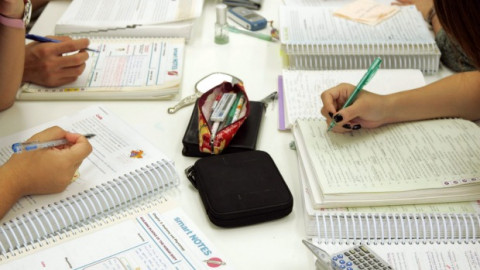
As school goes back for the year, the Senate report into the systemic failings of the education system for students with disability is very timely. In the myriad emails principals will see in their inbox, I hope mention of this report is one of them.
The report calls out the system's "entrenched culture of low expectations" towards students with disabilities. If parents score a school that has an enabling culture towards disability, you have won the "lottery". I know this first-hand because my feisty mother managed just that.
Only now, as a law graduate on the autism spectrum with my own company that employs 20 autistic professionals to mentor autistic students, do I realise how much of a difference my principals made to me.
I am the product of public schools. I know they need more support and funding. However, one immediate thing a principal can take away from the Senate's report is the importance of not underestimating students with disability.
The difference between my schooling and the overwhelmingly negative experience described in the Senate's report is that my principals did not change their expectations of me, simply because I was connected to the label "autism".
This difference is one of the reasons why I am neither one of the overwhelming 81 per cent of young Australians on the spectrum who are without a post-secondary qualification, nor one of the 58 per cent of autistics who are unemployed. Australia's economy is senselessly missing out on the strengths of my peers.
There are countless strengths. I had a big imagination as a kid. When I spoke with you, I was typically imitating a character I had either read or watched on TV. My diagnostic report perceived I was "isolated and lonely". If you had asked me, my world was bliss. In class I was a gun at spelling, but slow with maths. These things combined, meant I loved writing stories. Hilariously, at age nine I tried to write the sequel to Gone With The Wind. Sadly, it remains unpublished.
This is what my primary school principal and his staff seized. No matter how tense I could be, no matter how frequently they had to walk on egg-shells around my obsession of the day, they all knew to leverage my story-writing as a way of getting me to engage and be considerate. It was this strengths-based approach and positive profiling that kept me open to learning.
I know this is easier said than done. My company takes me into schools every week where I see three things. I see students who have been made to feel as though they "can't" do things. I see teachers and principals who are trying to go the extra mile, but are harangued by so many pressures. But the inexpensive circuit-breaker I see time and time again is a school culture that is open to the possibilities of students with disabilities.
It takes a team effort. When I was in high school I was blessed to have a head of school, the late Mrs Horvath, who knew the power of culture. She never taught me, but she supported her staff's delivery by finding extra-curricular activities that broadened me immeasurably and calmed my anxiety. Having a physical disability herself, Mrs Horvath radiated an "I can" culture. She is an exceptional example and the inspiration behind my company. However, one of the lessons from her story is that her principal gave her the freedom to build culture and innovate.
What needs more air time in future Senate reports are the innovations schools are pioneering in the face of limited budgets. For instance, I watched one primary school in Ivanhoe, Victoria, leverage the voices and strengths of students with disabilities as a culture builder. The students moved from social misfits into peer role models.
As school goes back, a very simple thing principals can do in their first meetings with staff is think about the ways they can purposefully network students with a disability into activities, classroom responsibilities, assembly slots and talent quests where they show what they can do.
The Senate report may be bleak, but I have great expectations for the future. My generation of Australians on the spectrum, and the generations after me, are increasingly rejecting the stuffy textbooks on autism and driving a more positive rethink. This is where the wind is blowing. Public awareness is taking us into a future in which teachers, lecturers and principals will disclose that they are on the spectrum.
This future is in today's classrooms. So principals, think big for your students with a disability. Your school and our future will benefit.
Chris Varney is chief enabling officer of I CAN Network.
from http://www.smh.com.au/comment/students-with-disability-shouldnt-be-underestimated-20160121-gmapco.html